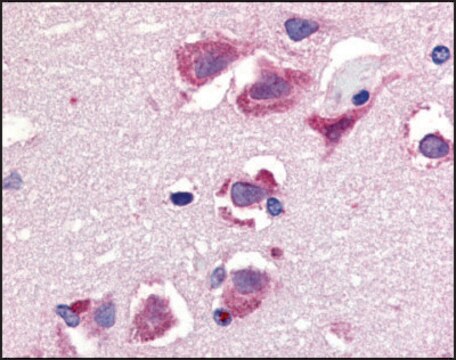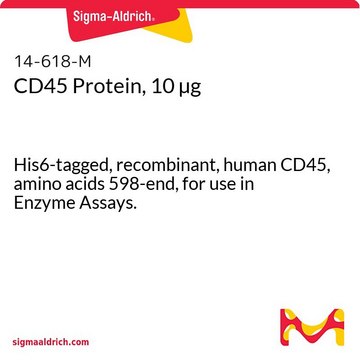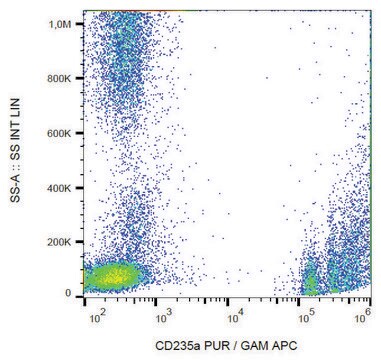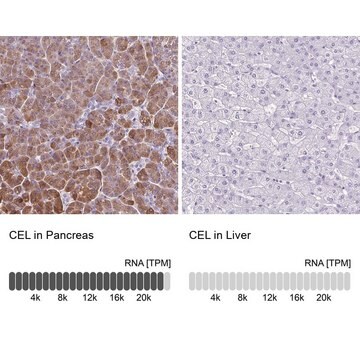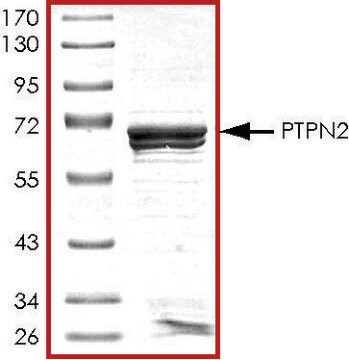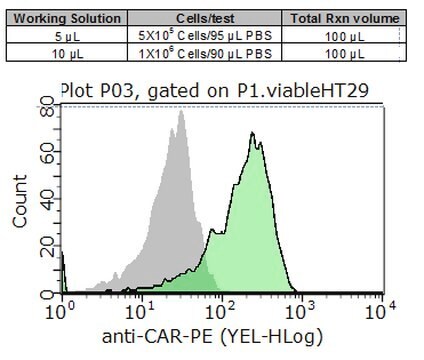MABC147
Anti-TRAIL/CD253 Antibody, clone 6D12.2
clone 6D12.2, from mouse
Synonyme(s) :
Tumor necrosis factor ligand superfamily member 10, Apo-2 ligand, Apo-2L, TNF-related apoptosis-inducing ligand, Protein TRAIL, CD253
About This Item
Produits recommandés
Source biologique
mouse
Niveau de qualité
Forme d'anticorps
purified immunoglobulin
Type de produit anticorps
primary antibodies
Clone
6D12.2, monoclonal
Espèces réactives
human
Technique(s)
flow cytometry: suitable
immunohistochemistry: suitable
Isotype
IgG1κ
Numéro d'accès NCBI
Numéro d'accès UniProt
Conditions d'expédition
wet ice
Modification post-traductionnelle de la cible
unmodified
Informations sur le gène
human ... TNFSF10(8743)
Description générale
Immunogène
Application
Immunohistochemistry Analysis: A 1:50 dilution from a representative lot detected TRAIL/CD253 in human prostate cancer sections. (Note: This antibody detects TRAIL/CD253 in cancer tissues and not in normal tissues.).
Apoptosis & Cancer
Apoptosis - Additional
Qualité
Flow Cytometry Analysis: 4 µg of this antibody detected TRAIL/CD253 in 1X10E6 HeLa cells, which were treated with a proinflammatory stimulus.
Description de la cible
Forme physique
Stockage et stabilité
Autres remarques
Clause de non-responsabilité
Vous ne trouvez pas le bon produit ?
Essayez notre Outil de sélection de produits.
Code de la classe de stockage
12 - Non Combustible Liquids
Classe de danger pour l'eau (WGK)
WGK 1
Point d'éclair (°F)
Not applicable
Point d'éclair (°C)
Not applicable
Certificats d'analyse (COA)
Recherchez un Certificats d'analyse (COA) en saisissant le numéro de lot du produit. Les numéros de lot figurent sur l'étiquette du produit après les mots "Lot" ou "Batch".
Déjà en possession de ce produit ?
Retrouvez la documentation relative aux produits que vous avez récemment achetés dans la Bibliothèque de documents.
Notre équipe de scientifiques dispose d'une expérience dans tous les secteurs de la recherche, notamment en sciences de la vie, science des matériaux, synthèse chimique, chromatographie, analyse et dans de nombreux autres domaines..
Contacter notre Service technique